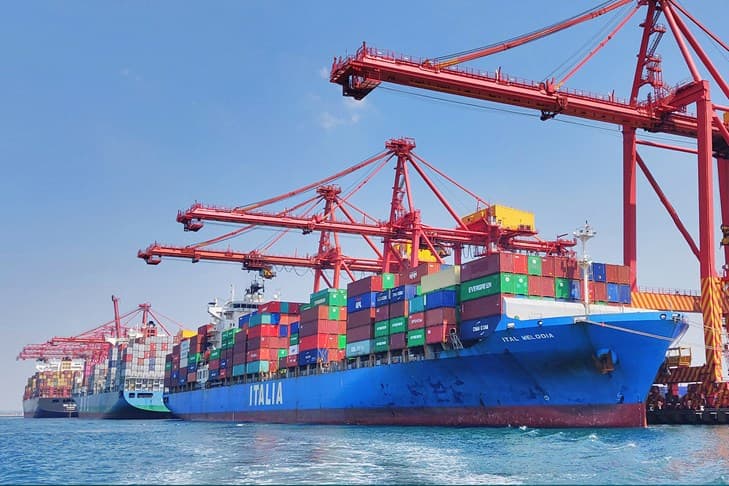Containerization has revolutionized the shipping industry by providing numerous advantages over traditional bulk cargo methods. It involves the use of standardized intermodal containers that can be easily transferred between ships, trucks, and trains, offering unparalleled efficiency and security in the transportation of goods. In this article, we will explore the various advantages of containerization in the shipping industry. The knowledge about containerization will help any student to get job in shipping, freight forwarding and export-import industries. Guiders Education is a number one professional training institute in Kerala which give quality training in the field of Shipping ,logistics and supply chain Management.
One of the primary benefits of containerization is its ability to streamline the shipping process. By standardizing container sizes and dimensions, containers can be quickly loaded and unloaded from ships, trains, and trucks using specialized equipment such as cranes and forklifts. This process is significantly faster and more efficient than traditional bulk cargo methods, which require manual loading and unloading of each individual item. This efficiency allows shipping companies to save time and money, while also reducing the risk of damage to cargo during the loading and unloading process.
Another advantage of containerization is its superior security. By enclosing cargo in sealed containers, shipping companies can protect against theft, damage, and other types of cargo loss. Additionally, containers can be easily tracked and monitored using modern technology, enabling companies to quickly identify and address any issues that may arise during the shipping process. This level of security gives businesses greater peace of mind when transporting valuable or sensitive goods, reducing the risk of loss or damage.
Containerization also offers greater flexibility and versatility than traditional bulk cargo methods. Containers can be easily modified and customized to meet the specific needs of different types of cargo. For example, refrigerated containers can be used to transport perishable items such as food and pharmaceuticals, while specialized containers can be used to transport oversized or irregularly shaped cargo. This flexibility allows shipping companies to adapt to the needs of their customers, increasing their overall competitiveness and enhancing their ability to serve a wider range of industries.
Another advantage of containerization is its positive impact on the environment. By standardizing container sizes and dimensions, shipping companies can maximize the use of available space, reducing the number of trips required to transport the same amount of cargo. This, in turn, reduces the overall carbon footprint of the shipping industry, contributing to a more sustainable future. Additionally, the use of intermodal transportation – i.e., transporting cargo via multiple modes of transportation – can further reduce carbon emissions by reducing the reliance on trucks for long-distance transportation.
Finally, containerization offers significant cost savings to businesses. By optimizing the use of space and increasing efficiency, shipping companies can reduce their operating costs and pass those savings on to customers. Additionally, the use of intermodal transportation can reduce the overall cost of shipping by leveraging different transportation modes to find the most cost-effective route for transporting cargo. This flexibility allows businesses to save money on transportation costs, enabling them to focus on other aspects of their operations.
In conclusion, containerization has transformed the shipping industry by providing a range of benefits that traditional bulk cargo methods cannot match. Its ability to streamline the shipping process, improve security, offer flexibility, reduce environmental impact, and provide cost savings has made it the preferred method of transporting goods for businesses around the world. As the shipping industry continues to evolve, containerization will remain a vital component of the global supply chain, enabling businesses to operate more efficiently and effectively than ever before.
Guiders Education is the best training institute in Kerala with more than a decade experience in the professional training for logistics industry. Our students are placed in the premier industries in India and abroad. Logistics offers excellent career growth as the industry is ever booming with never ending opportunities. As E- commerce and International business (Export and Import) is booming, opportunities for logistics professionals is also increasing.







